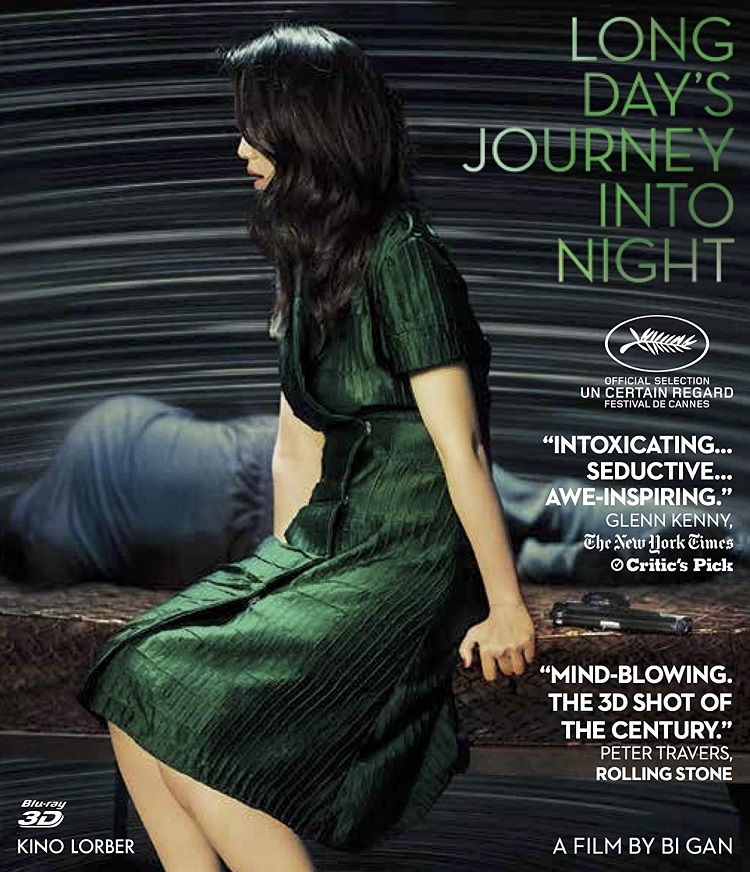
You gotta love marketers. They can make you lots of money and screw you at the same time. Bi Gan’s second feature film Long Day’s Journey into Night (which has nothing to do with the Eugene O’Neill play) was marketed in his homeland of China as a romantic event. For its opening night on New Year’s Eve, the film was scheduled so that it would end as the clock struck midnight. It was suggested its closing scene, which involved two people engaged in a romantic kiss, would make a perfect time for couples to bring a kiss into the new year.
The strategy worked. The film broke box-office records for its opening weekend. Then it hardly made anything after. Bad customer reviews flooded in. Hashtags were created, trending how the movie was impossible to understand. It quickly vanished from cinemas.
It is easy to see how this plan backfired. Its first hour is a confusing mish mash of flash-backs, flash-forwards, and memories half-remembered. Its back half consists of an unbroken 59-minute long take that requires 3-D glasses. There is nothing about this film that screams blockbuster for the popcorn-eating masses. It requires a great deal of patience, an ability to get lost in a labyrinth plot, and possibly requires a pad and pencil for note-taking on a plot that may not actually resolve itself.
It follows Luo (Huang Jue) as he searches for his former lover, Wan Qiwen (Tang Wei), who he only half remembers. Its first half feels like a neo-noir with secret messages hidden behind clocks and mysterious people who share bits of information that is both illuminating and more mysterious. It is full of arresting, half-seen images and reflections seen through puddles of water and constant rain. One of my favorite moments is when the camera is pulling back out of an enclosed alley and then suddenly rain splatters upon glass and then windshield wipers begin to wipe away the rain at which point we realize we are seeing the world through the bed of a vehicle. There are always layers upon layers of which we are seeing this world.
It is difficult to make sense of anything that is happening and I’m not entire sure you are supposed to. It looks and feels like the fascinating dream that fades as the first light of comes streaming in through the window. Chase it as you may, you’ll always come up empty-handed.
About the midpoint, Luo sits down in a dilapidated movie theatre and slips on a pair of 3-D glasses which is the queue for the audience to put theirs on too. We then follow him as he wanders through a cave, into a run-down prison, to an old pool hall, and a town square where a crowd watches karaoke singers on a make-shift stage. It is a bravado piece of filmmaking (the director has said it took them two months to plan out and seven attempts to complete) but I’m not entirely sure there is a point to it other than being really cool.
Luo talks to a young boy who lives in a cave and a woman who runs a pool hall. The conversations are mundane yet seem full of meaning. A man is separated from a woman by a locked fence. The woman begs to be let in but the man refuses. Luo pulls a gun on the man and forces him to unlock the gate. The woman and man leave together. Events unfold, but nothing seems to happen.
I’ve been sitting with this film for a couple of days now and I still haven’t the foggiest idea of what actually happened and if any of it makes sense. But what it lacks in narrative cohesion, it makes up for in the beauty of its images. The first half is naturally more beautifully shot as the technical complications of shooting the last hour in one continuous shot means the setups and cinematography are a little more constricted, but it is all quite pleasing to the eye.
Bi Gan has noted that he wanted the first half to be more dreamlike, to weave in and out of time, and its second half to take place more grounded in reality, in real-time. The two pieces work like two halves of a book with the first half being snippets of a life half remembered and the second half being what happens after the story. Or something. It will take me several more viewings to figure it all out, if even then. Until then, I’m left with a beautiful dream.
Kino Lorber presents Long Day’s Journey into Night with a 1080 transfer and a 1.85:1 aspect ratio. It comes with a 2-D and 3-D disk so if you have a 3-D TV you will get the full experience (I did not watch the 3-D version). Extras include an interview with the director and star Huang Joe, plus a making-of documentary, and a booklet with another interview with the director.